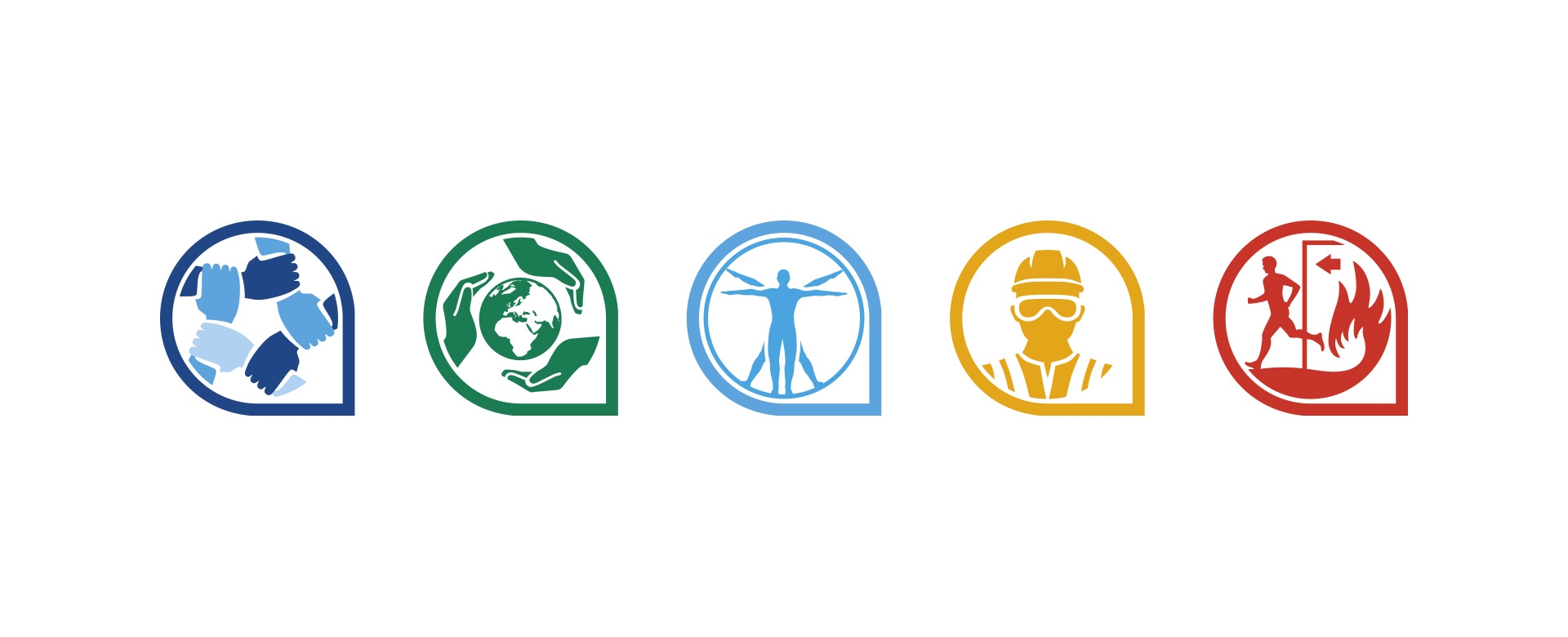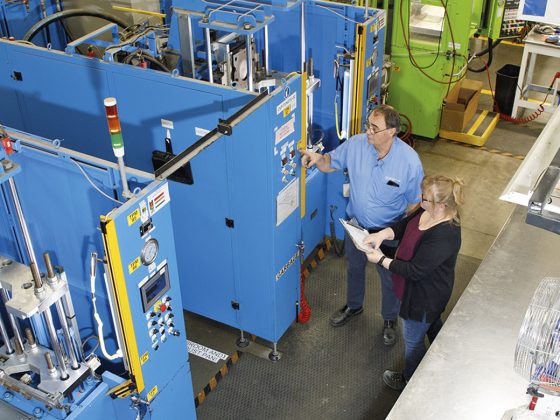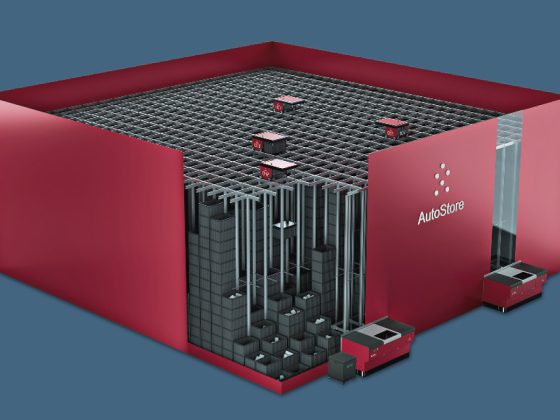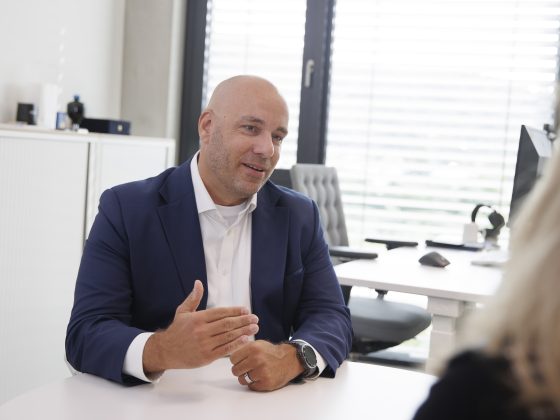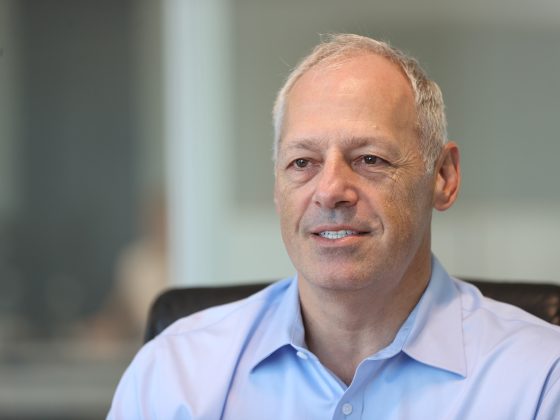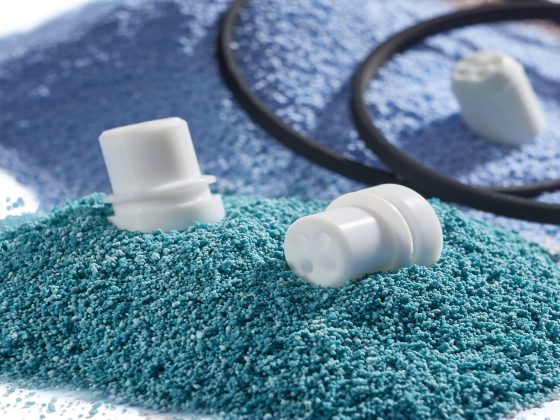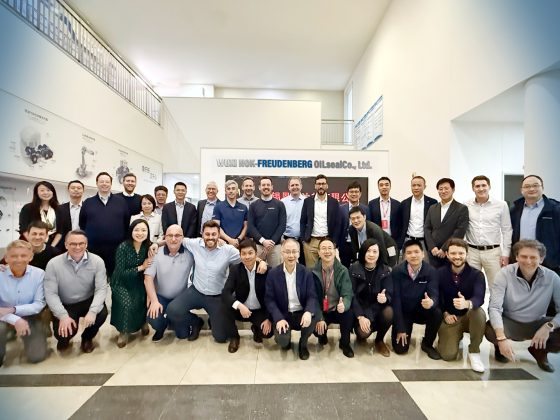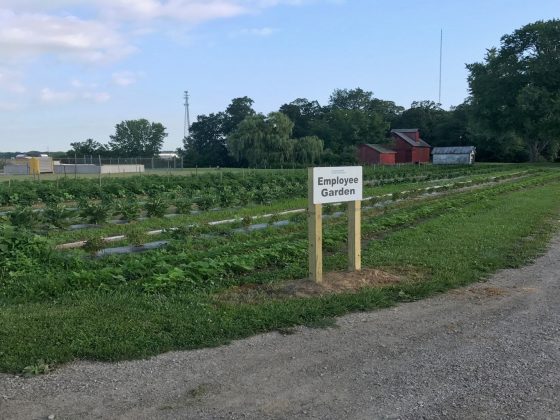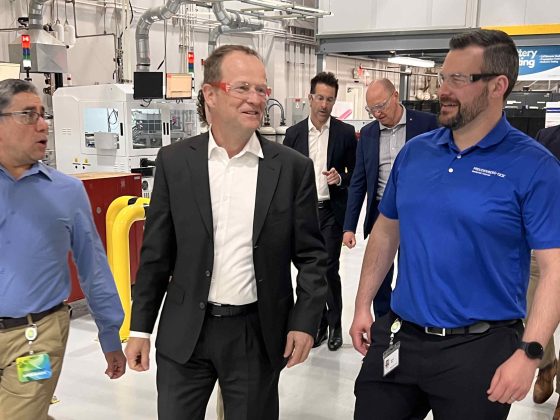The six winners of the “We all take care!” competition presented their projects to the jury virtually – and thus nearly CO2 neutrally – as they have over the past three years. The jurors selected one project – the FSS5 digitalization app from North Shields (GB) – to represent Freudenberg Sealing Technologies (FST) in the global Freudenberg Group contest. Last year, 25 different FST sites submitted a total of 33 projects that make work safer, protect the health of employees and the environment, and reflect the company’s sense of social responsibility.

Corporate Social Responsibility

Environmental Protection, Material and Resource Efficiency
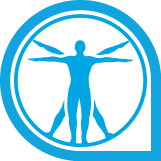
Occupational Health Management
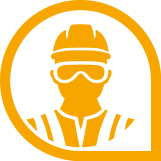
Safety at Work
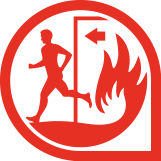
Site Risks and Emergency Management
North Shields Presents Another Winning Project
NORTH SHIELDS | ENGLAND
For the second time since 2017, the North Shields facility, a unit of the Fluid Power Division, has represented FST in the Freudenberg-wide “We all take care!” competition, this time on May 3. The winning project is an app of North Shields’ own design, the FSS5 Digitalization App.”
This project was an application enabling the complete digitalization of machine safety checklists and the processes behind them. Error-prone documentation on paper is eliminated, and a machine’s safety status can be called up in real time. The result is greater transparency and precision. The team in northern England developed the solution on its own using the Microsoft Power Platform. It can be easily carried over to other checklists and systems – and used at other facilities. That makes the project a superb example of what “We all take care!” awards are all about: learning from the experience and the successes of others and spurring improvements in one’s own workplace using practical examples.

This “We all take care!” project represented FST at the overall Freudenberg competition in May.


Watching Out for Everyone
Findlay | USA
At the Freudenberg Sealing Technologies plant in Findlay, Ohio in North America, everyone is focused on a safe work environment. Safety Seal Teams have been formed to improve the site’s safety program and systematically build awareness of safety on all three manufacturing shifts and in all the business areas (Fluid Power Automotive, Special Sealing Automotive and Components).
The Safety Seal Teams’ most important job is to continually improve job safety at the plant – with an unwaivering goal of zero accidents. Teams went into action on all three shifts.
A behavior-based safety program had already been in existence since 2019. Its key points are that safety is always the top priority, everyone is responsible for it, and all employees should watch out for themselves and others. The teams noticed that employees sometimes cut themselves while working. Or they slip, stumble or fall on occasion. Measures were taken to prevent this.
The Safety Seal Teams keep an eye out and intervene when they see potential hazards. Team members filled out special observation sheets to document them. One participant created graphics to sharpen awareness of safety rules and guidelines. The graphics were posted in high-traffic areas, increasing their visibility.
The team members regularly communicate their observations to sensitize employees across the board. Thanks to the safety teams and continuous improvement in the safety culture, the Findlay plant achieved its goal in 2022: There wasn’t a single accident resulting in medical care or a lost day of work that year. For the facility, it was the best safety outcome ever.
Forklift-Free, Thanks to Lenny and Gizmo
WEINHEIM | GERMANY
Forklifts can endanger people on the shop floor. The managers in charge of mixing facilities have long dreamed of forklift-free operations and have looked for suitable alternatives. But these options were often no less hazardous than forklifts, or they heavily burdened staffs. Solutions were needed to deal with tight spaces and grapple with the sheer quantity of the primary products and goods that required transport.
Since 2021, two autonomous mobile robots (AMR), dubbed Lenny and Gizmo, have been in operation in Weinheim. They reliably make deliveries to individual workplaces in the mixing plant. The AMRs handle the work highly efficiently, but pose no danger to their human coworkers. They orient themselves using a pre-set site plan and require no navigational aids. Thanks to the sensors attached all around them, they can perceive a person standing behind them. If an obstacle suddenly appears and the AMR lightly runs into it, a bumper is triggered and the robot stops. This minimizes the risk of accidents and increases job safety.
The production area of the mixing facilities has been free of forklifts since October 2022. Just one forklift still transports goods. It operates in the warehouse, and a robot will soon replace it. “Lenny and Gizmo carry everything that has to be transported from the warehouse to the mixing chamber, and then on to the kneaders,” said Annette Reisner-Schaab, who presented the project to the “We all take care!” jury in late March. The cargo includes ingredients for compounds such as rubber, carbon black, cross-linking chemicals, oils, fillers and much more.
The two autonomous robots handle about 180 deliveries per day. Forklifts once made these trips, which added up to about 8,000 kilometers (nearly 5,000 miles) per year. That’s about the distance from Weinheim to Mumbai.
The robots travel at a constant speed, cannot be distracted, and, thanks to their sensors, make sure no one comes to harm. And they are helping to cut expenses: The cost of forklifts’ collisions with shelves, doors and other plant vehicles has been put at about 40,000 euros a year.

Reduction, Recuperation, Resources
CHENNAI | INDIA
The Freudenberg NOK (India) plant in Chennai has done a lot for the environment, for example, by reducing CO2 emissions by a total of 19 percent in 2021 and 2022. By the end of 2023, the plant is expected to release 48 percent less carbon dioxide. Its management has also committed to complete carbon neutrality by 2045.
One of the key factors in its success is obtaining energy from the right resources and reducing the plant’s environmental footprint. This brings the three “Rs” into play: a reduction in energy consumption, the recuperation of energy, and the resources to meet energy needs.
Chillers and cooling towers account for more than 50 percent of the production facility’s total consumption. That’s why the plant management launched two projects to regulate the speeds of both installations, reducing consumption in the process.
An internal analysis shows that ventilation systems require a great deal of energy. So the team took on the task of reducing the cooling load by 10 percent. In addition, the rolling doors to the manufacturing area were equipped with automatic controls and a motion sensor. After a door is open for 60 seconds, it automatically closes to keep heat from entering the space. These measures alone are cutting total CO2 emissions by 4 percent.
In Chennai, the sun shines 317 days a year. The plant’s available roof surface can accommodate photovoltaic panels that produce 1.27 megawatts of green electricity, which reduces CO2 emissions by 11 percent. Other reductions can be achieved by accelerating the use of electricity from wind facilities.
Compressed air is required for the operation of molding machines and kneaders. The pressure has been 7 bar until now. An analysis showed that the kneaders only require 6 bar, and the production equipment just 4 bar. The plant is saving an additional 1 percent of its carbon dioxide emissions thanks to the pressure reduction.
Another project contributed to the success as well: The team in Chennai was able to achieve another 3 percent savings in CO2 emissions by switching from heating oil to natural gas. A few small changes in the burner unit allowed the conversion to a different fuel.
The Degreasing Bath Is Cooling Down
WEINHEIM | GERMANY
A metal carrier must be cleaned, degreased and pretreated to ensure that an elastomer adheres to it perfectly after molding. This takes place in a phosphating facility. This step in the process is highly energy intensive, but essential to a long-lasting bond between the elastomer and the metal. An interdisciplinary team has now developed a low-energy phosphating process. It was achieved by experts from Technology & Innovation (T&I), the Lead Center Oil Seals Industry, the Application Center Transmission & Driveline (all units of FST) and their corporate sibling SurTec.
The team had ambitious plans to help the company deal with increased energy costs recently and meet its sustainability objectives. The members wanted to reduce the temperature of the degreasing baths in the phosphating facility from 65 to 45 °C, lowering the plant’s energy consumption in the process. Why do that? To generate much less carbon dioxide. And to cut the use of chemicals and thus the amount of waste – which in turn results in lower processing and raw material costs. In all, FST has 14 phosphating facilities of its own: six in Europe, five in the United States, and three in Asia. In addition, six external phosphating services work for the company in Europe.
SurTec has developed a low temperature degreasing process, and FST has adapted the new product to its own operations, along with the drawing oils used during stamping. Thanks to the new degreasing process, it is possible to significantly reduce operating temperatures. “In Weinheim alone, it was possible to save 44 percent of the energy used for degreasing. That was the equivalent of 18 tons of CO2 per year,” explained Dr. Stanislaus Schmidt, Professional Materials Engineering at T&I, during his presentation to the “We all take care!” jury. Or to put it another way, the number of kilowatt hours dropped from 204,602 (equivalent to the energy consumed by 127 households per year) to 113,568 (the equivalent of 70 households per year).
The technology can be employed in all the phosphating facilities used by FST. “In the future, we are planning to reduce the temperature in other cleaning baths,” Schmidt said. The chemical baths of today’s phosphating facilities are often heated to, and then maintained at, a temperature of 65 to 80 °C. This is associated with high energy use, along with significant costs and CO2 emissions, which in turn lead to a large CO2 footprint for FST’s products. So far, it has been hard to integrate environmentally friendly technologies like solar panels or heat exchangers into phosphating processes due to their considerable energy and heating needs.
“During a range of tests during production, we were able to prove that the technology works perfectly for our requirements. That means that we can take the temperatures of the phosphating baths 20 °C lower. We also need fewer chemicals to achieve the same cleaning results,” Schmidt. A nice side effect: The lower temperatures will permit the use of renewable energy in the future.

“Sitting is the New Smoking”
REMAGEN | GERMANY
According to American scientist James Levine, “Sitting is the new smoking.” He says people are too sedentary, noting that many chronic ailments can be traced to long periods of immobility. As a health problem, this has been as serious as cigarette smoking, he says.
People today are seated for long periods in offices, in cars, in public transportation, and on couches. Heavy workloads and the accompanying psychological or physical stresses add to the problem. Thomas Castillon works in quality management at FST’s Remagen facility and is a certified fitness trainer on the side. He was personally affected by the devastating catastrophe in the Ahr valley in 2021 and knows from personal experience that physical activities can reduce stress. From his work as a trainer, he also knows that exercise strengthens and improves mental health.
On his own initiative, he has developed a way to keep employees fit even in challenging times, working with the Academy of Sports and HR Manager Dr. Jutta Gatter. For example, he offers employees the chance to take part in short fitness breaks via Teams during the workday, among other activities. The breaks include stretching exercises for the neck, back, shoulders and wrists. “Even in the middle of the workday, it is important to ease up and take a mental break for a few minutes,” he said. This can relieve or prevent chronic illnesses traceable to largely sedentary activities in offices. Both mind and the body benefit since physical activity has been shown to improve mental capacity.
During the first half of 2022, Castillon worked out the concept and created plans for the physical activities. Since August, he has offered 15-minute weekly meetings via Teams that each contain different training focuses to engage the entire body. “This breaks up the daily routine and we can recharge our mental batteries with these exercises,” Castillon said.
Between 20 and 30 people take part per meeting. Thanks to Teams, it doesn’t matter whether the people are working remotely or in the office. “Employees are happy to take him up on his offer – the feedback that Thomas Castillon is getting is consistently positive,” said Operations Manager Marcus Darms, who presented the project to the jury.
